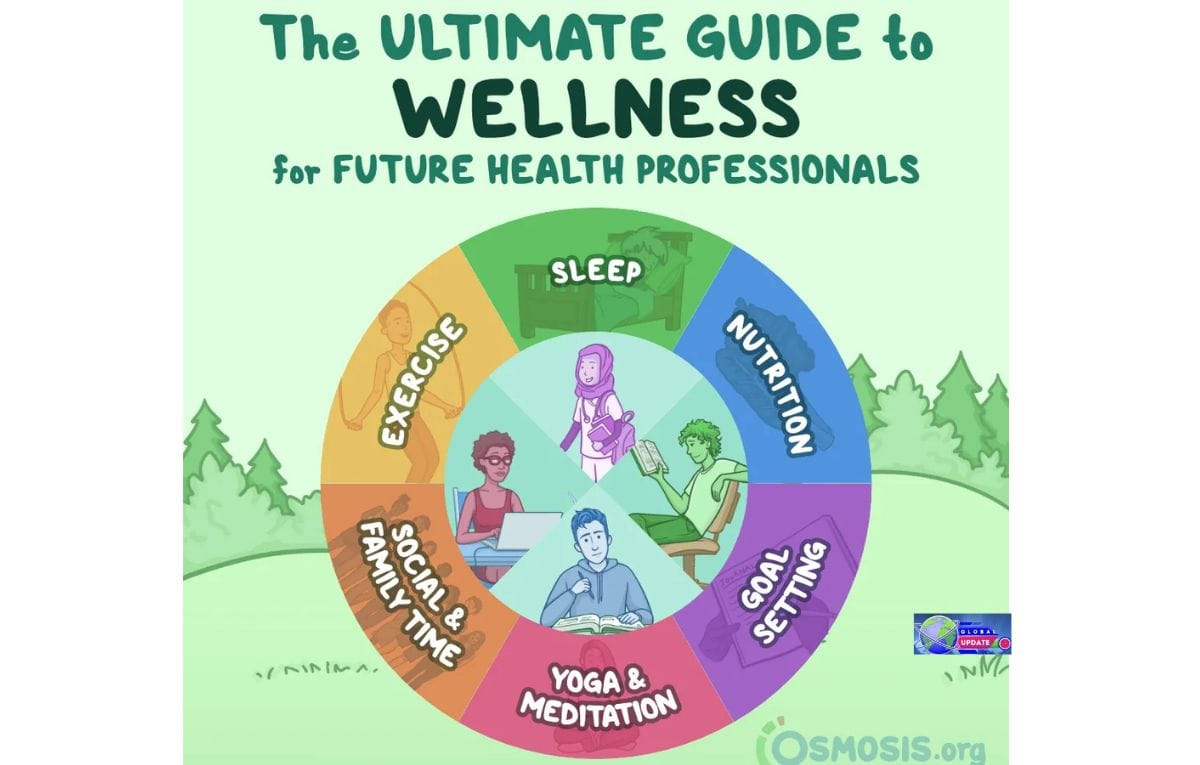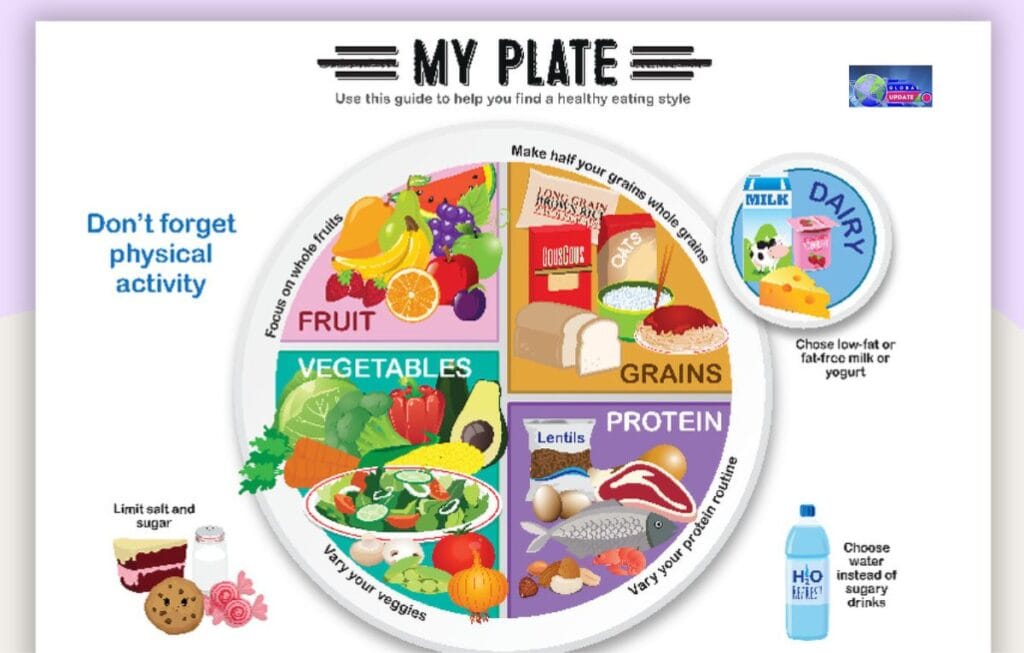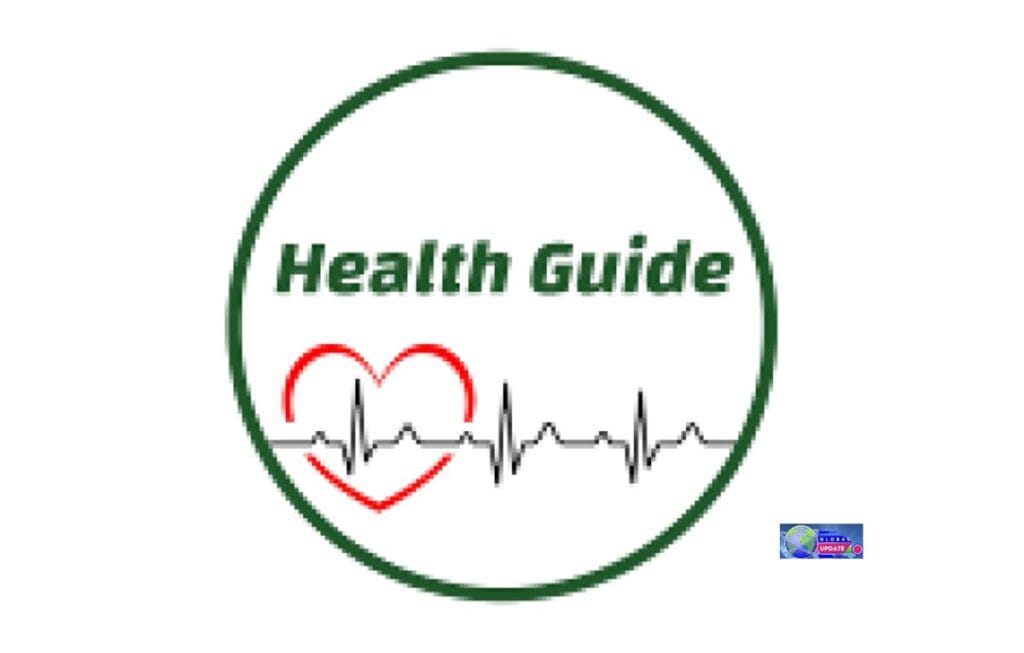A comprehensive health guide provides essential tips to prevent and manage common health issues, including heart disease, kidney problems, muscle and joint pain, eye infections, nasal and ear issues, allergies, stomach discomfort, finger infections, nail disorders, and knee pain.
Maintaining excellent health starts with prevention—eating a balanced diet, staying active with regular exercise, getting quality sleep, and managing stress.
Practicing proper hygiene, staying hydrated, and avoiding harmful habits like smoking or excessive junk food also reduce risks.
Recognizing early symptoms and seeking timely medical advice can save lives, while home remedies and healthy routines support daily wellness.
By following these health tips and adopting a preventive lifestyle, you can protect your body, strengthen your immunity, and enjoy long-term well-being.
Health is our most incredible wealth, yet many of us overlook small issues until they become serious. From heart problems to knee pain, each condition has its own set of warning signs, prevention strategies, and treatments.
This health guide provides practical tips on common health concerns—explaining their causes, symptoms, and simple steps to stay healthy.

1. Heart Problems
Causes
Heart problems often arise due to unhealthy lifestyle habits, such as poor diet, lack of exercise, smoking, high stress, and family history of cardiovascular disease. High blood pressure, high cholesterol, and diabetes are major contributors.
Symptoms
- Chest pain or pressure
- Shortness of breath
- Fatigue
- Irregular heartbeat
- Dizziness or fainting
Prevention & Tips
- Eat heart-healthy foods like oats, fish, leafy greens, and nuts.
- Limit intake of fried and processed foods.
- Stay physically active—30 minutes of brisk walking daily makes a big difference.
- Avoid smoking and alcohol.
- Manage stress with breathing exercises or meditation.
- Get regular medical checkups to monitor cholesterol and blood pressure.
2. Kidney Problems
Causes
Kidney issues often develop due to uncontrolled diabetes, high blood pressure, dehydration, excessive use of painkillers, or infections.
Symptoms
- Swelling in feet, hands, or face
- Frequent or painful urination
- Blood in urine
- Persistent fatigue
- Lower back pain
Prevention & Tips
- Drink 8–10 glasses of water daily to flush toxins.
- Avoid too much salt, soda, and junk food.
- Control blood sugar and blood pressure levels.
- Limit painkiller use and consult a doctor for long-term medication.
- Include kidney-friendly foods like apples, cranberries, and leafy vegetables.
3. Muscle Pain
Causes
Muscle pain can result from overuse, poor posture, lack of stretching, dehydration, or deficiencies in vitamins and minerals like magnesium.
Symptoms
- Soreness
- Stiffness
- Weakness in muscles
- Difficulty moving
Prevention & Tips
- Warm up before exercise and cool down afterward.
- Stay hydrated and maintain a balanced diet.
- Apply hot or cold compresses for relief.
- Massage sore muscles with essential oils.
- Ensure proper posture while sitting or lifting heavy objects.
4. Joint Pain
Causes
Joint pain may be linked to arthritis, injury, overuse, or autoimmune conditions. Being overweight increases strain on joints, especially knees and hips.
Symptoms
- Swelling and stiffness
- Difficulty in movement
- Tenderness around the joint
- Pain that worsens at night or after activity
Prevention & Tips
- Maintain a healthy weight to reduce pressure on joints.
- Include foods rich in omega-3 fatty acids (salmon, flaxseeds).
- Engage in low-impact exercises like swimming, cycling, or yoga.
- Use hot and cold therapy for inflammation.
- Avoid sitting or standing for too long in the same position.
5. Eye Infections
Causes
Eye infections may be caused by bacteria, viruses, allergies, or contact lens misuse. Poor hygiene and exposure to dust also play a role.
Symptoms
- Redness and irritation
- Watery or sticky discharge
- Swelling around the eyes
- Blurred vision
- Sensitivity to light
Prevention & Tips
- Wash your hands before touching your eyes.
- Avoid sharing makeup, towels, or pillows.
- Use protective glasses in dusty environments.
- Remove contact lenses before sleeping.
- Use prescribed eye drops and avoid rubbing the eyes.
6. Nose Problems (Blockage, Infections, Allergies)
Causes
Nasal issues can be triggered by sinus infections, dust, pollution, dry air, or allergies.
Symptoms
- Runny or stuffy nose
- Sneezing
- Facial pain or pressure
- Loss of smell
- Nosebleeds in dry weather
Prevention & Tips
- Use a saline spray or steam inhalation to clear nasal passages.
- Stay away from strong perfumes, smoke, and allergens.
- Keep your home clean and dust-free.
- Use a humidifier in dry weather.
- Treat seasonal allergies with medical advice.
7. Ear Problems
Causes
Common causes include infections, fluid buildup, loud noise exposure, or poor ear hygiene.
Symptoms
- Earache
- Hearing loss
- Discharge from the ear
- Ringing sounds (tinnitus)
- Dizziness
Prevention & Tips
- Avoid inserting cotton buds or sharp objects in your ears.
- Keep ears dry after swimming or showering.
- Treat colds and sinus infections early to avoid ear complications.
- Use earplugs in noisy environments.
- See a doctor if pain or discharge persists.
8. Allergies
Causes
Allergies are immune system reactions to harmless substances like pollen, dust, food, or animal dander.
Symptoms
- Sneezing and a runny nose
- Itchy or watery eyes
- Rash or hives
- Difficulty breathing (in severe cases)
Prevention & Tips
- Identify and avoid triggers.
- Keep windows closed during high pollen seasons.
- Take a shower after outdoor activities to remove allergens.
- Strengthen your immune system with a balanced diet.
- Keep antihistamines handy after consulting a doctor.
9. Stomach Pain
Causes
Stomach pain can be caused by indigestion, food poisoning, ulcers, constipation, or stress.
Symptoms
- Cramping
- Bloating
- Nausea or vomiting
- Diarrhea or constipation
- Burning sensation (acidity)
Prevention & Tips
- Eat smaller, frequent meals.
- Avoid oily, spicy, and unhygienic food.
- Drink clean water to avoid infections.
- Include fiber in your diet to prevent constipation.
- Reduce stress through relaxation exercises.
- See a doctor if pain is severe or accompanied by fever.
10. Finger Infections & Nail Problems
Causes
Bacterial or fungal infections, poor hygiene, nail biting, or injuries can lead to these issues.
Symptoms
- Swelling and redness around the nail
- Pus or discharge
- Pain and tenderness
- Nail discoloration or thickening
Prevention & Tips
- Keep nails short, clean, and dry.
- Avoid biting nails or cutting cuticles too deep.
- Use antiseptic solutions on minor cuts.
- Wear gloves when working with detergents or dirty water.
- Moisturize hands and nails to prevent cracks.
11. Knee Pain
Causes
Knee pain is often caused by injuries, arthritis, excess body weight, or muscle weakness.
Symptoms
- Swelling and stiffness
- Cracking or popping sounds
- Pain while climbing stairs or bending
- Limited range of motion
Prevention & Tips
- Strengthen leg muscles with gentle exercises.
- Avoid high-impact sports if prone to knee pain.
- Wear supportive shoes.
- Apply ice packs to reduce swelling.
- Seek physiotherapy for long-term pain relief.
12. General Lifestyle Tips for Better Health
Beyond tackling specific problems, building healthy daily habits is the best way to prevent illness and stay strong.
- Balanced Diet: Eat fresh vegetables, fruits, proteins, and whole grains while avoiding excess sugar, salt, and fried foods.
- Stay Active: Engage in 30–45 minutes of exercise daily—walking, yoga, cycling, or swimming.
- Proper Sleep: Aim for 7–8 hours of quality sleep each night to allow the body to heal and recharge.
- Stay Hydrated: Drink 8–10 glasses of water daily for kidney, skin, and digestive health.
- Hygiene: Wash hands regularly, keep nails trimmed, and maintain oral and personal hygiene.
- Stress Management: Practice meditation, deep breathing, or hobbies to keep stress under control.
- Regular Checkups: Don’t ignore routine health screenings—early detection saves lives.

Conclusion
Health problems—whether small or serious—should never be ignored. By following these simple tips and staying proactive, you can reduce risks, manage symptoms, and live a healthier, happier life.
Remember: prevention is always better than cure. If any condition persists or worsens, consult a healthcare professional immediately.



